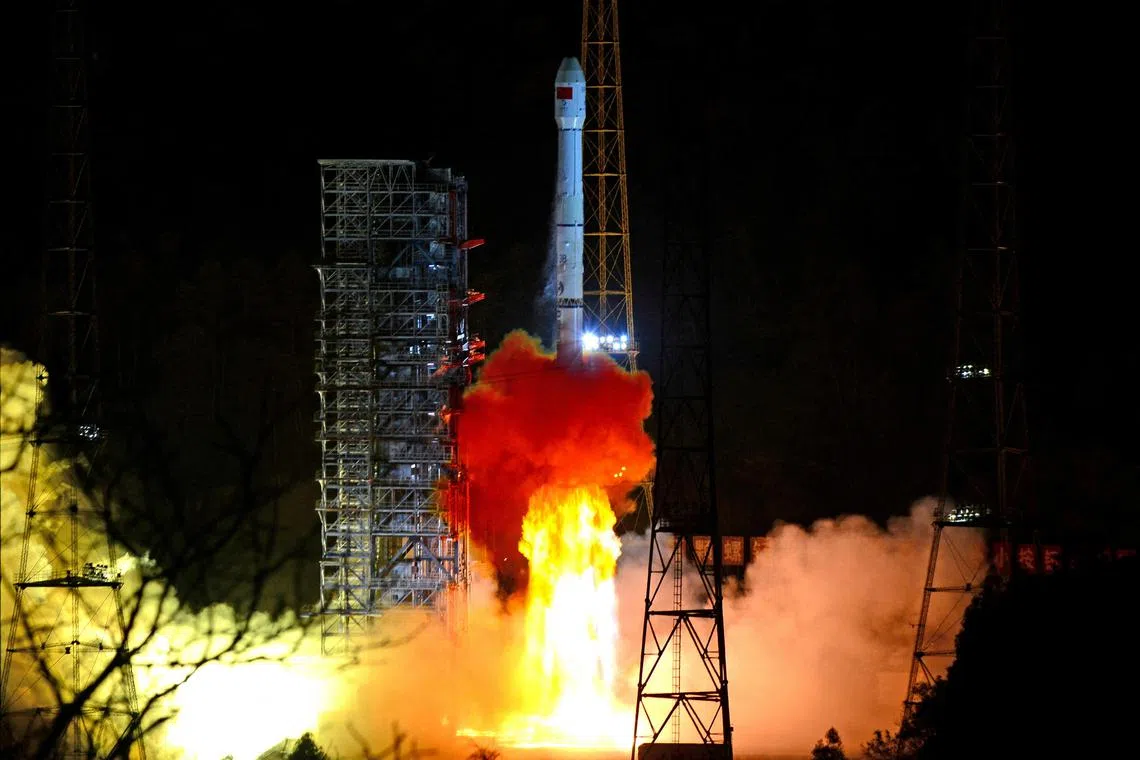China launches space probe seeking asteroid samples
Sign up now: Get insights on Asia's fast-moving developments

A Long March-3B rocket carrying the Tianwen-2 probe blasting off from the Xichang launch site in south-western Sichuan province.
PHOTO: REUTERS
BEIJING - China on May 29 launched a space probe on the country’s first mission to retrieve samples from an asteroid and bring them home for research, reported Xinhua state news agency.
Beijing has ploughed billions of dollars into its space programme in recent years in an effort to achieve what President Xi Jinping describes as the country’s “space dream”.
It has built a space station orbiting the Earth and plans to run a crewed mission to the Moon this decade ahead of establishing a permanent base there.
A Long March-3B rocket carrying the Tianwen-2 probe blasted off from the Xichang launch site in south-western Sichuan province at 1.31am.
About 18 minutes later, the Tianwen-2 probe was sent into a transfer orbit from Earth to the asteroid 2016HO3, said the China National Space Administration (CNSA), according to Xinhua.
“The spacecraft unfolded its solar panels smoothly, and the CNSA declared the launch a success,” the news agency wrote.
Tianwen-2 is tasked with collecting samples from the near-Earth asteroid 2016HO3, and exploring the comet 311P, according to the country’s space agency.
Discovered by scientists in Hawaii in 2016, the asteroid is roughly 40m to 100m in diameter, and orbits relatively close to Earth.
It is a “living fossil” consisting of ancient materials that can help scientists understand how the early solar system formed, Xinhua reported this week.
The comet, meanwhile, orbits between Mars and Jupiter and is alluring to researchers because it exhibits some features more commonly associated with asteroids.
The Tianwen-2 mission is expected to last around a decade.
China’s space programme is the third to put humans in orbit – after the United States and the Soviet Union – and has also landed robotic rovers on Mars and the Moon.
Its space station, Tiangong – whose name means “celestial palace” in Chinese – is the jewel in its crown.
In April, China sent three astronauts to Tiangong


